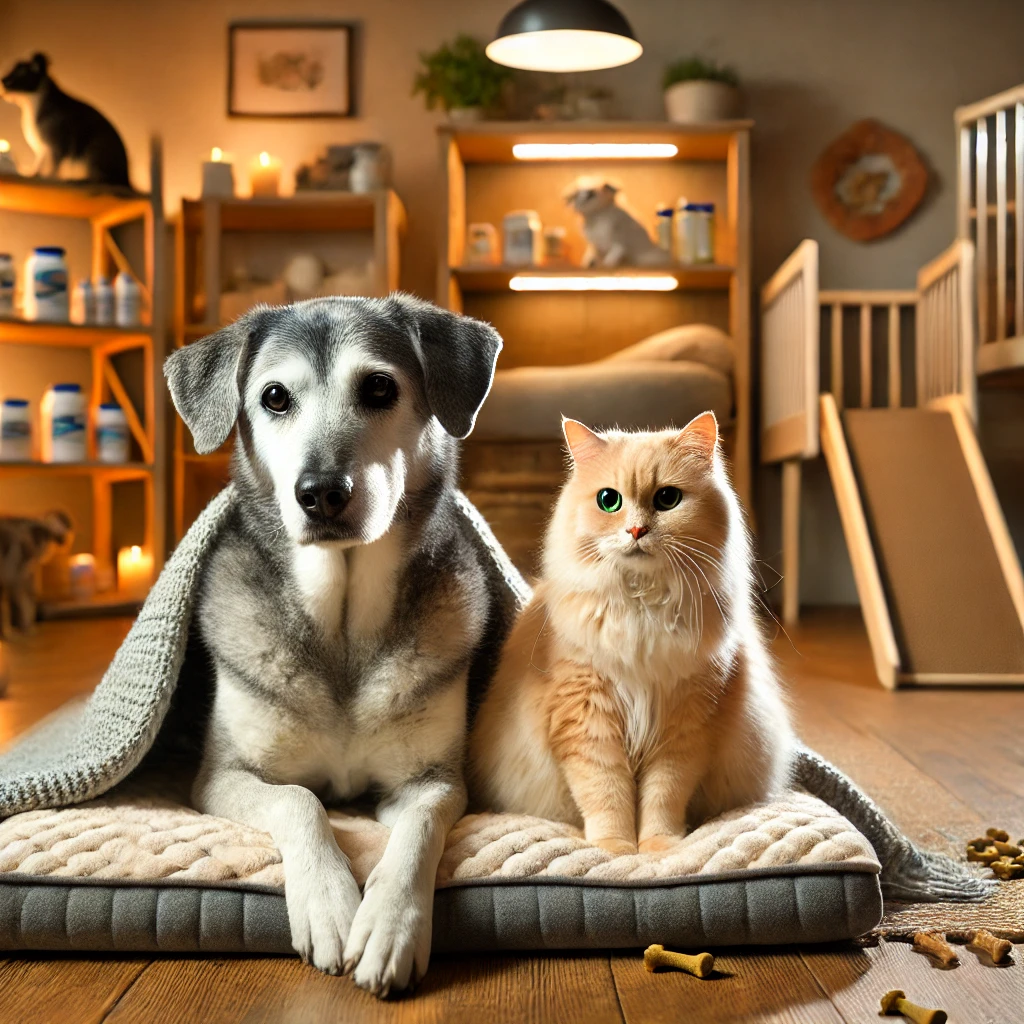
Senior Pet Care: Keep Your Older Pet Healthy
As our furry friends grow older, they enter a golden stage of life that requires special attention and care. Senior pet care is not just about maintaining their health but also ensuring they live their twilight years with joy and comfort. Whether you have a seasoned canine companion or a wise old feline, understanding their unique needs is key to keeping them healthy and happy.
Signs Your Pet Is Aging
Recognizing the signs of aging in your pet can help you provide timely care. Common indicators include:
- Decreased energy levels: Your pet may prefer lounging over playing.
- Joint stiffness or mobility issues: They might struggle to climb stairs or jump.
- Changes in appetite: Eating habits may fluctuate.
- Weight gain or loss: A noticeable change in weight could indicate underlying health concerns.
- Cloudy eyes or hearing loss: Vision and hearing may diminish with age.
If you notice any of these signs, consult your veterinarian to rule out potential health issues and create a tailored care plan.
Essential Tips for Senior Pet Care
1. Regular Veterinary Check-Ups
Older pets are more susceptible to illnesses like arthritis, diabetes, and kidney disease. Schedule routine vet visits—at least twice a year—to monitor their health. Early detection of health problems can make a significant difference in your pet’s quality of life.
2. Balanced Nutrition
Senior pets often require specialized diets to support their aging bodies. Look for foods formulated for older pets, which often include:
- Glucosamine for joint health.
- Antioxidants to boost immunity.
- Controlled calories to prevent obesity. Consult your vet to determine the best diet for your pet’s specific needs.
3. Maintain a Healthy Weight
Excess weight can strain your pet’s joints and lead to other health issues. Engage your pet in low-impact activities like gentle walks or light play sessions to keep them fit.
4. Comfort and Accessibility
Make your home senior-pet friendly. Provide soft bedding, ramps for easier access to favorite spots, and non-slip mats to prevent falls. These small changes can greatly enhance their comfort.
5. Mental Stimulation
Cognitive decline is common in senior pets. Keep their minds sharp with puzzle toys, scent games, or short training sessions. Interaction and stimulation are vital for their mental well-being.
6. Dental Care
Dental health often deteriorates with age, leading to pain and infections. Regular brushing, dental chews, and professional cleanings can prevent dental issues.
The Emotional Side of Senior Pet Care
Caring for a senior pet is a deeply rewarding experience. Their love and loyalty grow stronger with age, and your bond becomes even more special. Spend quality time with them, offer gentle affection, and cherish every moment. Remember, your care and attention make their golden years truly golden.
Senior Pet Care Products to Consider
Investing in the right products can make a world of difference:
- Orthopedic pet beds for joint support.
- Elevated food and water bowls to reduce strain.
- Supplements like omega-3 fatty acids and glucosamine.
- Mobility aids like harnesses or strollers.
Senior pet care is about celebrating your pet’s life and ensuring they thrive in their later years. By staying attentive to their needs and providing them with love, comfort, and proper care, you can make their senior years as fulfilling as possible.
For more tips and advice on pet care, visit Pet Pulse Daily, your trusted source for all things pet-related.
